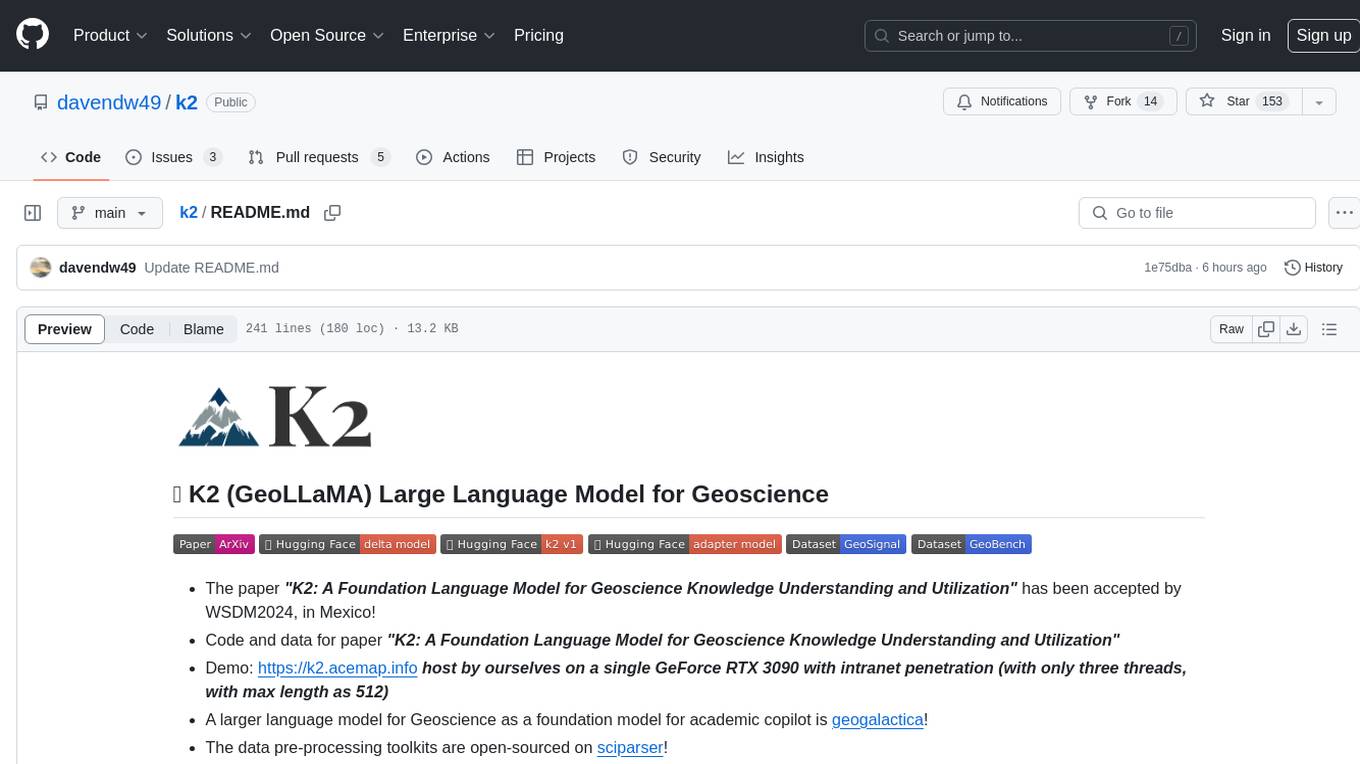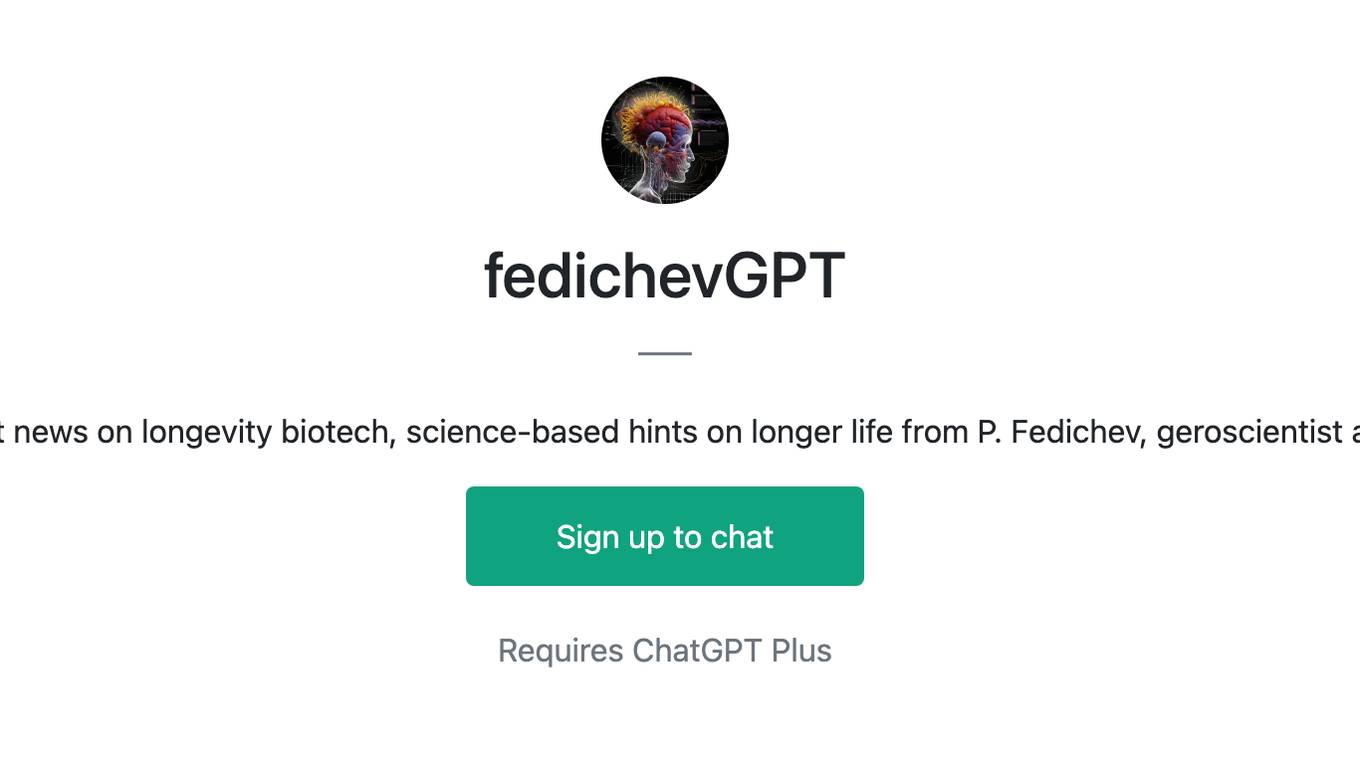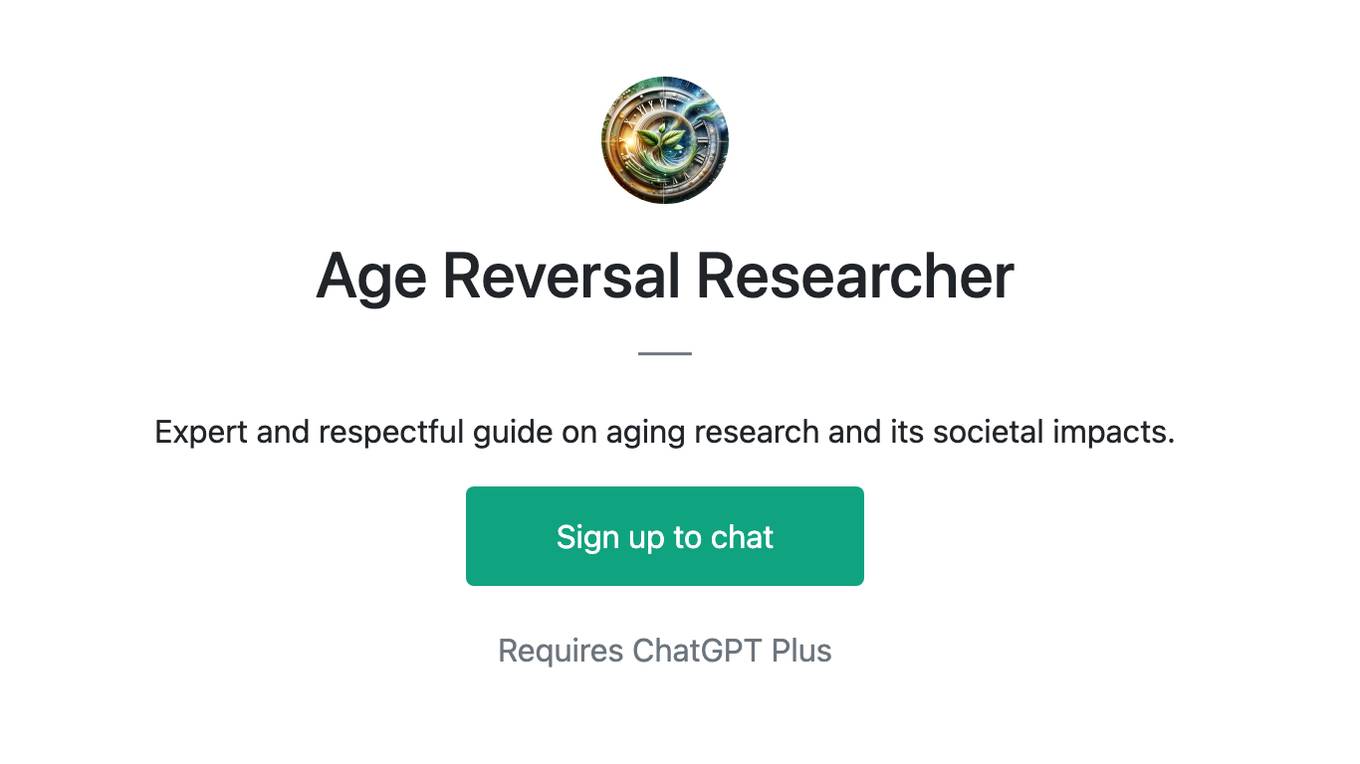Best AI tools for< Geoscience Educator >
Infographic
0 - AI tool Sites
1 - Open Source Tools

k2
K2 (GeoLLaMA) is a large language model for geoscience, trained on geoscience literature and fine-tuned with knowledge-intensive instruction data. It outperforms baseline models on objective and subjective tasks. The repository provides K2 weights, core data of GeoSignal, GeoBench benchmark, and code for further pretraining and instruction tuning. The model is available on Hugging Face for use. The project aims to create larger and more powerful geoscience language models in the future.
3 - OpenAI Gpts

fedichevGPT
AMA about aging, latest news on longevity biotech, science-based hints on longer life from P. Fedichev, geroscientist and founder of gero.ai

Age Reversal Researcher
Expert and respectful guide on aging research and its societal impacts.
